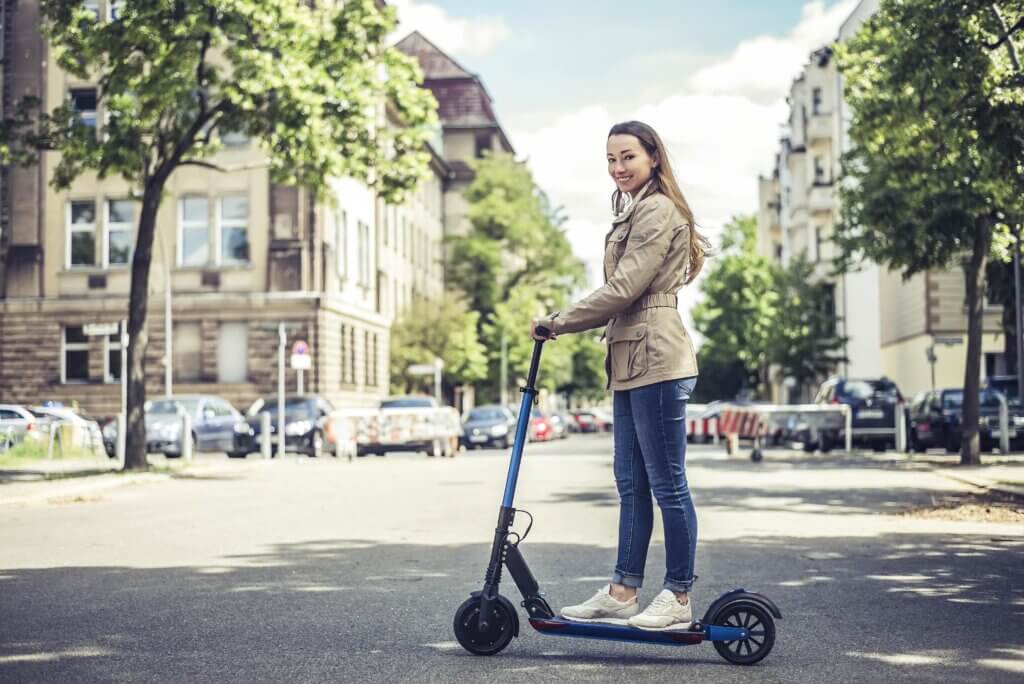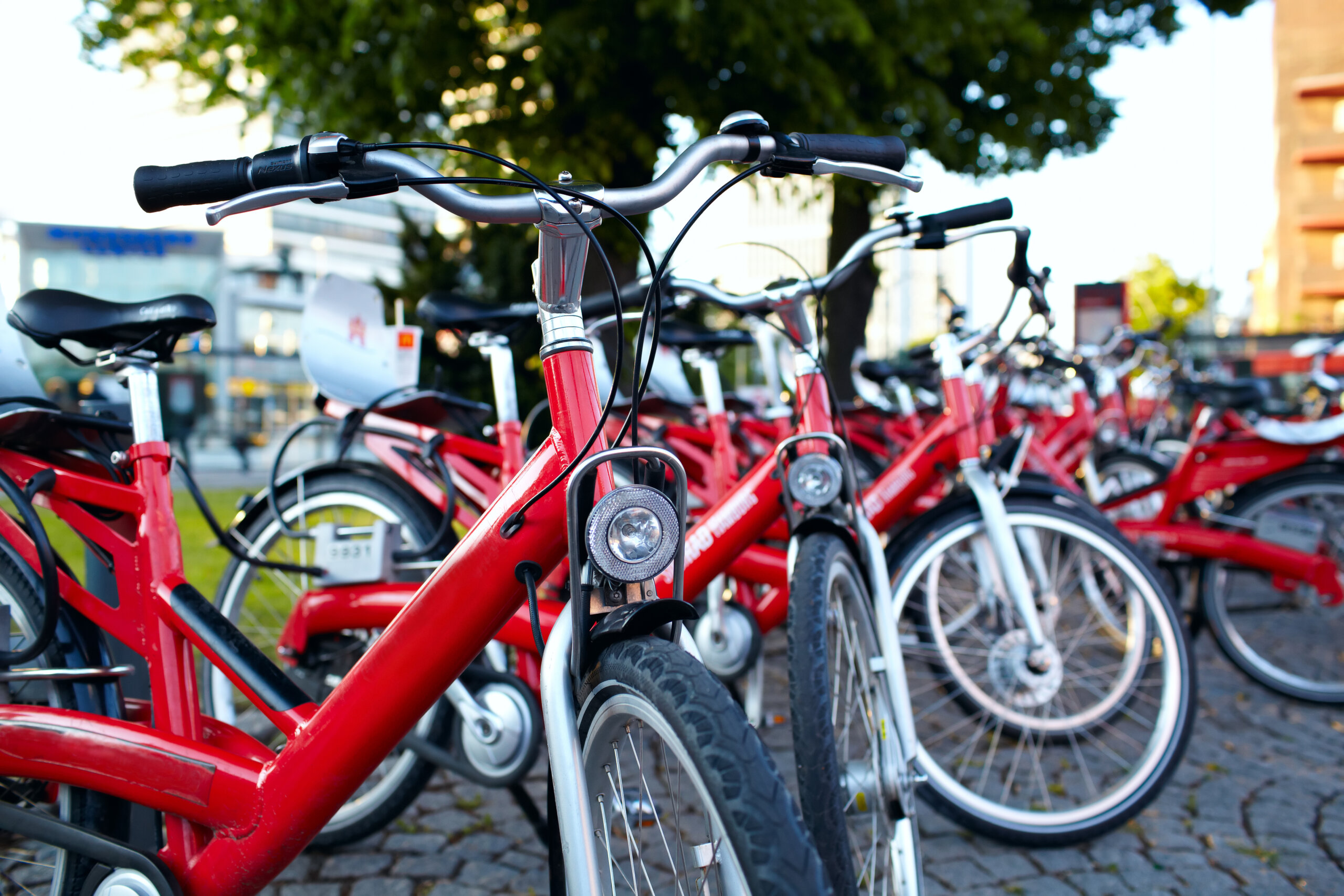Written By:
 Salvatore Nuzzo
Salvatore Nuzzo
Your Dedicated & Trusted Legal Team
3 Generations & 100+ Years of Combined Legal Experience

Since the pandemic, I’ve noticed that traffic lawlessness is on the rise. There just seems to be a general disregard for the rules of the road. Statistics show that 2020 had more traffic fatalities than any year in the past decade. This issue is made worse by overwhelmed law enforcement who are faced with so many other issues, making traffic violations a lower priority.
Just prior to the pandemic, another mode of transportation hit the streets of New York – e-bikes and e-scooters. Companies like Bird, Lime and Revel operate in a number of major U.S. cities including New York. And, just like other newer ways to get around, such as Uber and Lyft, sharing the roads in heavily populated areas inevitably leads to accidents. When they involve subscription-based vehicles, we treat them the same way we treat any other traffic incident.
“Policing” Its Own Customers
Back in 2020, an article in The New York Times noted that three people died in Revel-related accidents in one month alone. It led the company to close down, but only temporarily. Upon re-opening, it introduced new safety measures, including:
· a more assertive way of making sure their users were wearing the company-provided helmets,
· requiring riders to take a 42-question safety quiz, as well as offering e-learning tools, and
· the addition of GPS tracking and a dual-camera system to all of its 3,000 vehicles on NYC streets, so it will be able to tell if people are abiding by traffic laws (e.g., riding in prohibited areas).
Policing E-bike and E-scooter Riders
When law enforcement is addressing traffic violations, it makes no difference to us whether the vehicle is owned by the driver or not. Basically, these e-cyclists have all the rights – and are subject to all of the regulations – applicable to drivers of motorcycles and cars. So, for example, police will pull you over and write a ticket to a rider who is not wearing a helmet; it is an enforceable summons.
In the case where the company’s own GPS tracking picks up on a traffic violation, those riders will face immediate suspension. But the police won’t be able to act upon that information. It’s considered hearsay. We can only write up tickets for things we actually witness. That said, if we see a person driving on a sidewalk or somewhere else where they are not supposed to be, we will issue a summons.
It’s important to note that people who ride these e-bikes and e-scooters are not required to have a motorcycle license, just a regular driver’s license. That’s unfortunate because driving a car is not the same as driving a two-wheeled vehicle. New York’s motorcycle license requirement, which includes passing a road test, was skirted because the law applies to vehicles that exceed 30 mph. These e-bikes and e-scooters top out at that speed.
Some municipalities further regulate the time, place and manner of operation of these devices. If we know of time restrictions and see someone operating one of these e-bikes or e-scooters during that prohibited timeframe they will be ticketed.
New York City law also requires that e-bike and e-scooter drivers be at least 16 years old. If we see a child who is obviously younger riding on one of these vehicles, we will pull them over.
The bottom line is that a person ticketed while riding one of these vehicles will be responsible for the fines and any other consequences associated with that summons. The Revel company also specifically notes that its customers “…are responsible for parking in a space that is legal” and “…any [parking] tickets incurred.”
What about Accidents and Injuries to an E-bike or E-scooter Operator?
Because a motorcycle license is not required and most people are not experienced drivers of two-wheeled vehicles, accidents can and do happen, as reported above. Like motorcycle riders, those riding e-bikes and e-scooters have almost no bodily protection; especially since a good number of riders neglect to wear a helmet even though it’s required.
If police show up at an accident scene involving an e-bike or e-scooter, they will process the scene and handle the investigation in the exact same way as they would any other accident. Police will assess injuries, if any. Then they’ll get identification and statements from those involved. Statements will also be taken from witnesses—bystanders or drivers who saw but weren’t involved in the accident. In short, the police must make a detailed accounting of the events and document them in an accident report.
While it may be the vehicle operators fault, especially if they should have been aware of the e-scooter operator and weren’t vigilant), it may also be the e-scooter driver’s fault (e.g. they cut across lanes or made a dangerous maneuver which would have made it hard or impossible to avoid them being hit. Or in theory they could both be at fault. It’s the police officer’s job to determine who is at fault and this attribution of fault ends up on the police report. However, an insurance company or jury may or may not agree with the police officer’s determination, nor are they required to agree. So the bottom line is that the police report is not necessarily the final word.
What To Do if You’ve Been Injured
If you’ve been injured in an accident involving an e-bike or e-scooter, you will want to get a copy of the accident report and bring it, along with any other pertinent documentation (like medical records), to an experienced personal injury attorney. He or she will assess your case, help identify who may be liable, and if warranted pursue fair compensation for any injuries and/or damage you might have suffered due to negligence.

 Salvatore Nuzzo
Salvatore Nuzzo
About The Author
Salvator Nuzzo has spent more than 30 years as an insurance adjuster for various major insurers. Throughout his career, he has handled an estimated 8,000 claims.
Read MoreLatest from Our Blog



Editorial Standards
Rosenblum Law is committed to delivering informative content of the highest quality. All content is subject to our rigorous editorial standards for relevance, accuracy, sourcing, and objectivity. Everything is fact-checked by an editor and reviewed for legal soundness by one of our practicing attorneys prior to being published.
How to Cite Rosenblum Law’s Article
APA
Salvatore Nuzzo (Sep 7, 2018). How a NY Traffic Ticket Impacts Quebec Drivers. Rosenblum Law Firm, https://rosenblumlaw.com/how-a-ny-traffic-ticket-impacts-quebec-drivers/
MLA
Salvatore Nuzzo "How a NY Traffic Ticket Impacts Quebec Drivers". Rosenblum Law Firm, Sep 7, 2018. https://rosenblumlaw.com/how-a-ny-traffic-ticket-impacts-quebec-drivers/
